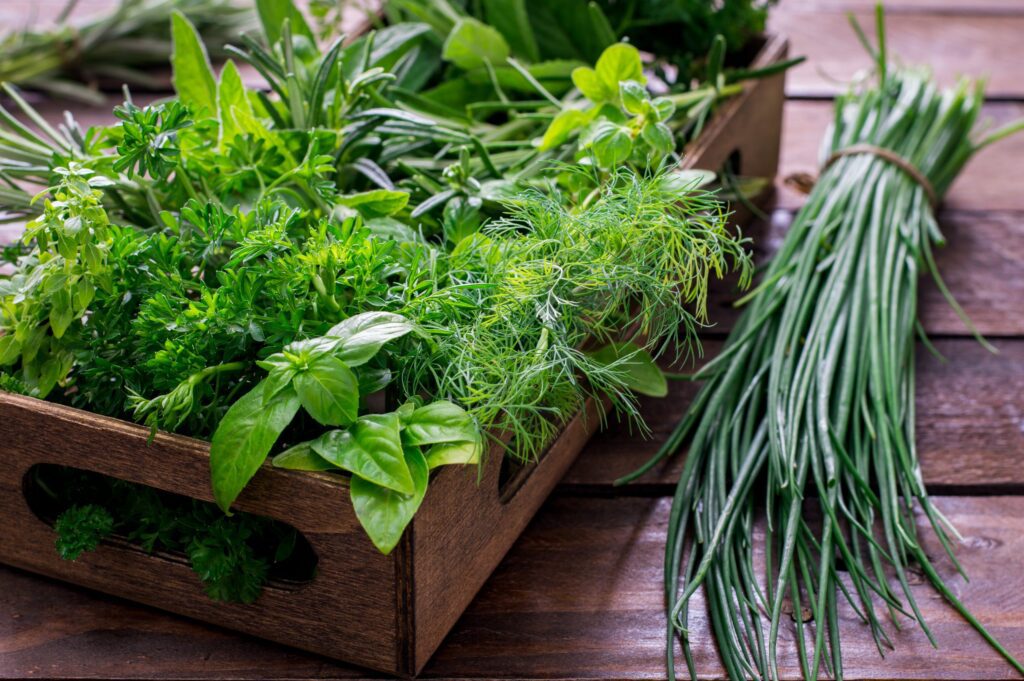Fresh herbs bring magic to cooking by adding flavor and aroma to dishes. They also offer numerous health benefits. Basil is rich in vitamin K, vitamin A, vitamin C, iron, calcium, and magnesium. Rosemary is packed with antioxidants, vitamin C, manganese, iron, and calcium. Parsley is high in vitamin K, vitamin C, vitamin A, iron, and folate. Oregano has antibacterial properties and is a good source of vitamins and minerals. Mint is refreshing and rich in antioxidants, vitamin C, potassium, and calcium. Thyme aids in respiratory health and is high in vitamins C and A. Sage improves memory and cognition and is rich in antioxidants, vitamin K, vitamin A, calcium, and iron. Incorporating these fresh herbs into cooking enhances taste and provides numerous health benefits.
The Magic of Fresh Herbs: Enhancing Taste and Aroma in Your Kitchen
Introduction
When it comes to cooking, nothing can replace the magic that fresh herbs bring to our dishes. Adding a burst of flavor and aroma, these small wonders elevate even the simplest recipes, transforming them into culinary delights. Not only do fresh herbs enhance taste, but they also carry numerous health benefits, making them an essential addition to any kitchen. In this article, we will explore the nutritional value and unique features of various herbs that can bring magic to your cooking.
1. Basil
Basil is a popular herb known for its distinct aroma and slightly sweet taste. It contains essential oils such as eugenol, linalool, and citronellol, which give it its characteristic fragrance. This herb is an excellent source of vitamin K, providing nearly 98% of the recommended daily intake per 100 grams. Additionally, basil contains significant amounts of vitamin A, vitamin C, iron, calcium, and magnesium.
2. Rosemary
Rosemary is a woody herb with needle-like leaves and a strong, earthy flavor. It is packed with antioxidants and anti-inflammatory compounds such as rosmarinic acid and carnosic acid. Rosemary is a rich source of vitamin C, which helps boost the immune system. It also contains manganese, iron, and calcium, important minerals for maintaining overall health.
3. Parsley
Parsley is a versatile herb widely used as a garnish, but its nutritional value goes beyond its decorative purpose. This herb is an excellent source of vitamin K, providing over 500% of the recommended daily intake per 100 grams. Parsley is also rich in vitamin C, vitamin A, iron, and folate. Its high content of antioxidants, such as flavonoids, helps reduce inflammation and support heart health.
4. Oregano
Oregano is a fragrant herb commonly used in Mediterranean cuisine. It has potent antibacterial properties attributed to its high concentration of thymol and carvacrol compounds. Oregano also contains essential vitamins and minerals, including vitamin K, vitamin E, iron, and calcium. Moreover, it is an excellent source of dietary fiber, aiding digestion and promoting a healthy gut.
5. Mint
Mint is a refreshing herb known for its cool taste and calming effect on the digestive system. It contains menthol, a compound that provides a cooling sensation. Mint is rich in antioxidants, particularly rosmarinic acid, which exhibits anti-inflammatory properties. This herb is also a good source of vitamin C, potassium, and calcium.
6. Thyme
Thyme is a fragrant herb that adds depth and aroma to various dishes. Besides its culinary uses, thyme offers several health benefits. It contains thymol, a natural antiseptic that helps fight bacteria and aids in respiratory health. Thyme is also high in vitamin C and vitamin A, crucial for maintaining healthy skin and boosting the immune system.
7. Sage
Sage is a herb with a savory flavor that pairs well with roasted meats and vegetables. It has been traditionally used to improve memory and cognitive function. Sage is rich in antioxidants like rosmarinic acid and apigenin, which may protect against chronic diseases. This herb is also a good source of vitamin K, vitamin A, calcium, and iron.
Conclusion
Fresh herbs are a treasure trove of flavors, aromas, and nutritional value. Incorporating them into your cooking not only enhances the taste of your dishes but also provides numerous health benefits. From basil’s sweetness to rosemary’s earthiness and mint’s refreshing coolness, each herb brings its unique magic to the kitchen. So, start exploring the world of fresh herbs and let their enchantment transform your culinary creations!
